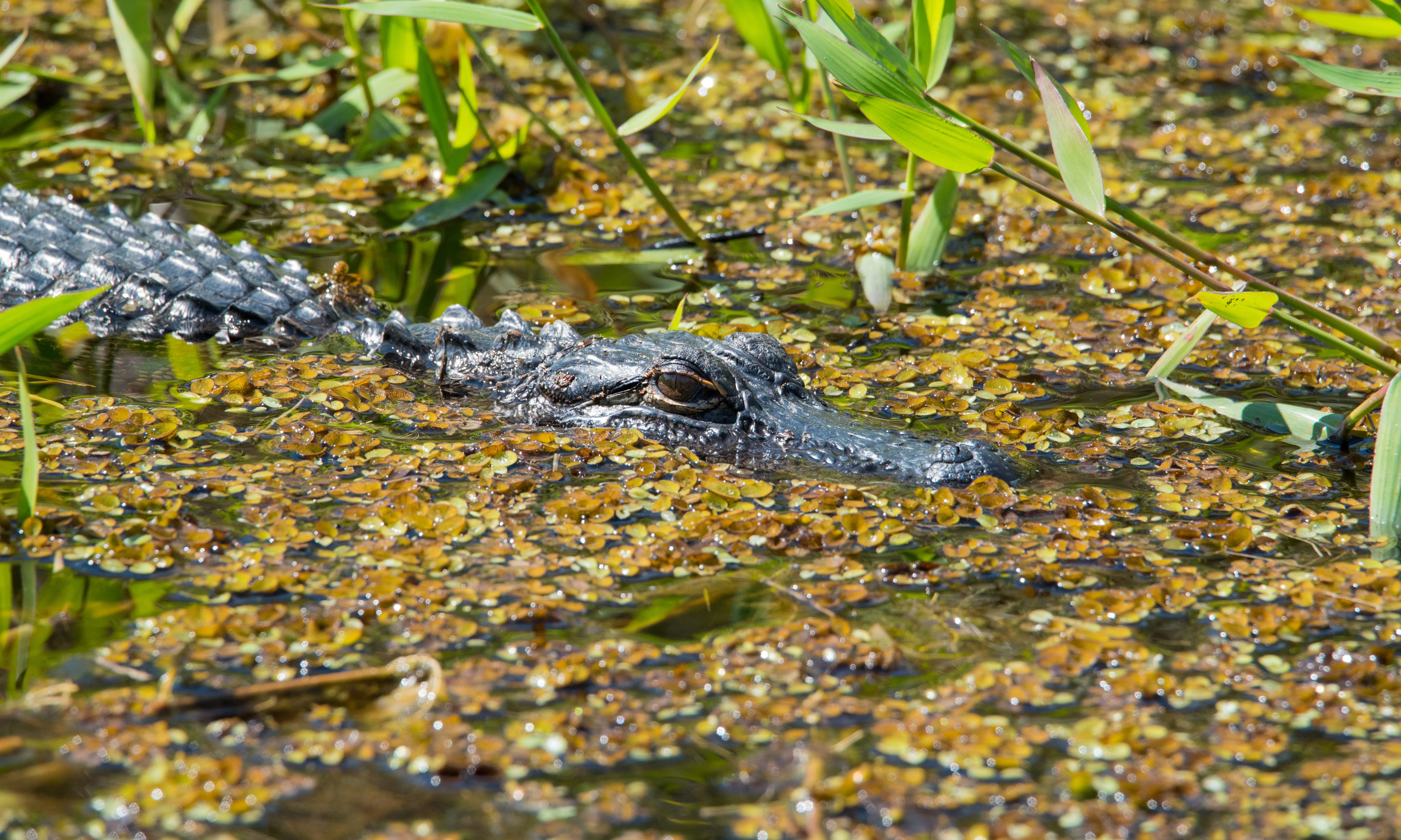Alabama’s alligator season is coming up in August, and registration to receive your alligator tag is now open.
Registration for alligator tags is now open and will continue until 8 a.m. on July 11. After a computer-controlled drawing, entrants can find out if they drew a tag after noon on July 11 by logging on at the same page where they registered at www.outdooralabama.com/alligators/alligator-hunt-registration. Those who are drawn will have seven days to confirm the tags and are required to attend a zone-specific training class with a couple of exceptions.
There are specific geographic zones in the state where tag holders may hunt and specific rules for hunting alligators in each zone, and that also applies to the zone-specific training.
Chris Nix is the Alabama Wildlife and Freshwater Fisheries’ Alligator Program coordinator.
“If you’ve taken the class as a tag holder or alternate in the Southwest Zone or West Central Zone, you’re exempt from having to take it again,” Nix said in a statement. “If your tag is in the Southeast Zone or Lake Eufaula Zone, the class is mandatory every year. We do that because of the contiguous zones with Georgia and the Eufaula National Wildlife Refuge, which is off-limits.”
There will only be 260 alligator tags issued, and normally only 60 to 70 percent of those will actually be filled.
Nix said that there is a preference points system. For each year an applicant fails to draw a tag, the points are cubed with a point added for the current year.
“If you have applied since 2014 and haven’t been drawn, you will have 65 points now,” Nix said. “It’s not guaranteed, but those people are highly likely to get drawn now. The longer the point system is in place, the quicker the turnover for people who haven’t gotten a tag.”
85 percent of the tags are filled with applicants with preference points, and the remaining 15 percent are allocated to those with no points. Once a person is drawn, the preference points are zeroed out. Preference points are also lost if the person fails to apply for a tag.
150 tags will be awarded in the Southwest Zone, 50 in the West Central Zone, 40 in the Southeast Zone and 20 in the Lake Eufaula Zone. Hunting is from sunset to sunrise.
Season dates for the Southwest Zone and the West Central Zone are sunset on August 9 until sunrise on August 12 and sunset on August 16 until sunrise on August 19. The Southwest Zone includes private and public waters in Baldwin and Mobile counties and private and public waters in Washington, Clarke and Monroe counties that lie east of U.S. Highway 43 and south of U.S. Highway 84. The West Central Zone includes private and public waters in Monroe – north of U.S. Highway 84, Wilcox and Dallas counties.
The Southeast Zone season opens at sunset on August 11 and runs until sunrise on September 3. The Southeast Zone includes private and public waters in Barbour, Coffee, Covington, Dale, Geneva, Henry, Houston and Russell counties – excluding public Alabama state waters in Walter F. George Reservoir/Lake Eufaula and its navigable tributaries.
The Lake Eufaula Zone includes public state waters only in the Walter F. George Reservoir/Lake Eufaula and its navigable tributaries south of Alabama Highway 208 at Omaha Bridge – excludes Eufaula National Wildlife Refuge. The Eufaula season dates are from sunset on August 17 through sunrise on October 1.
An eight-foot restriction on harvest is in effect for the Lake Eufaula Zone. The other zones have no size restrictions.
Rodney Young caught the largest alligator last year. It was 13 feet long and weighed 667 pounds.
The official world record alligator was caught by five members of the Stokes family in Mill Creek in 2014. The Stokes alligator measured 15 feet and 9 inches long and weighed 1,011.5 pounds. The Stokes alligator has been mounted and put on display at the Montgomery Zoo’s Mann Wildlife Learning Museum. The Stokes alligator was estimated to be 24 to 28 years old.
That might not be the biggest alligator out there. An alligator was killed in southern Louisiana in 1890 near Vermillion Bay that reportedly measured 19 feet, two inches and weighed an estimated 2,000 pounds. That alligator was not verified.
Alligators used to be an endangered species, but thanks to laws protecting the species, the alligator population has recovered. Alabama passed a law protecting the remaining Alabama alligators decades before the federal Endangered Species Act. Today, there are over 70,000 alligators in Alabama and over a million in the world.



















































